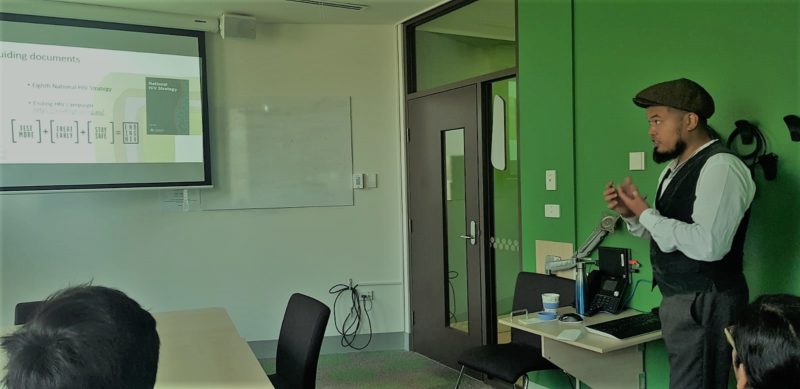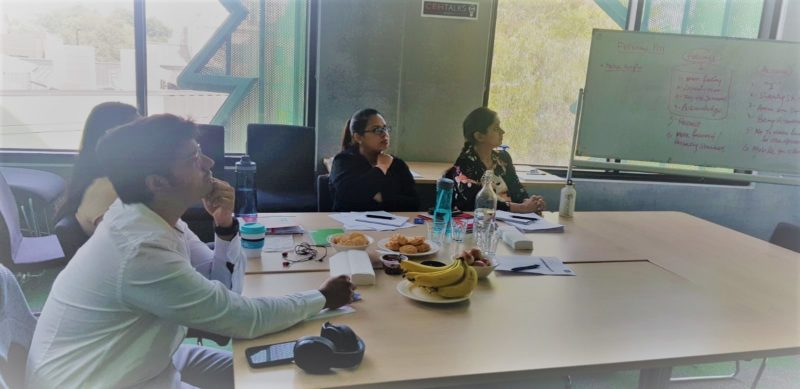
A month of health promotion training
Building on the work of CEHs Multicultural Health & Support Services (MHSS) to develop partnerships and facilitate involvement among the Indian community, the first of five education sessions: Overview of the Australian Health Care System and Health Beliefs was delivered on Tuesday 28th January 2020, for the peer educators from the Indian community.
Topics included: use and cost of services, such as a doctor’s clinic, emergency department at a hospital, ambulance, after hours doctor, pharmacy or chemist. Services that Medicare does not pay for, the availability of interpreter services and the importance of privacy and confidentiality in Australia, were also on the table for discussion.

Health beliefs of the Indian community were shared and exchanged. One of the peer educators said that there is a generalised belief that ‘’All contraception is bad”. ‘’Sexual health can only be related to pregnancy’’ while the other discussed the notion that ‘’Mistrust of Doctors was associated with shame, fear of Judgement and stigma’’.
The peer educators posed the question: “When a person gets sick – what do they do in India?”
Answers included: Home remedies, advice from elders in the family, the chemist for over the counter medicines and other specialists are considered the doctor to go to when feeling unwell as compared to GPs in Australia.
Why peer-led education is so important
Peer-led education is a method of health promotion based on the notion that people learn from their peers (Shiner, 1999). Research has shown that peer-based programs are highly effective and facilitate important changes in health-related behaviours among CALD communities. In addition, evidence suggests that being a peer educator (the individual delivering education to their peers) may increase self-esteem and improve social skills (Weber et al., 2010).
The Indian Peer Education Project
The aim of the project is to increase the educational capacity and reach of the MHSS program, enabling closer and more effective engagement with priority CALD communities affected by or vulnerable to BBV/STIs.
In this case, six peer educators were recruited from the Indian community to create a sustainable program of culturally authentic peer education through consultation and collaboration within their communities.
The training includes:
Day 1- Jan 28: Overview of the Australian Health Care System & health beliefs
Day 2- Feb 4: Sexually transmitted infections (STIs) Testing, treatment & prevention
Day 3- Feb 6: Understanding HIV
Day 4- Feb 19: Hepatitis B & C
Day 5- Feb 28: Healthy relationships, consent & contraception
Download the MHSS Community Education Sessions – 2020
Get involved:
CEH’s Multicultural Health & Support Service works with communities and health professionals to address the poorer health outcomes experienced by people from refugee & migrant backgrounds, asylum seekers and mobile populations. It aims to prevent HIV, viral hepatitis and STIs, and offer a multicultural approach to alcohol and other drug support.
We provide FREE community education sessions to people from refugee and migrant backgrounds, asylum seekers and international students. A fee may apply to tertiary institution providers. We’re flexible in our presentations and can explore other related topics.
CONTACT US to discuss what sessions you would like delivered & how:
t: (03) 9418 9929
e: enquiries@ceh.org.au
or BOOK your community education session HERE
